Mozambique: Cabo Delgado needs $1.2M to tackle rainy season impacts - INGD
Youngsters ask for support to pursue their dreams “far from machine guns”

File photo: DW
Mambo Mambo’s dreams of becoming an entrepreneur were put on hold when he fled Mocímboa da Praia more than a year ago. Today, he is selling dried fish at a makeshift stall in the market at the Chiure reception centre just to secure his next meal.
Mambo, 34, fled the district of Mocímboa da Praia, his birthplace, when insurgents intensified their armed incursions in the region in June 2020, leaving behind what little he had, including his dream of becoming a commercial businessman.
Today, a displaced person in the reception centre of Meculane, Chiure district, more than 150 kilometres from the provincial capital of Pemba, he struggles to guarantee as much as the next meal for his wife and six children, a difficult enterprise given that “nobody has any money” to buy his product.
“We had our stalls back where we were, but our ‘barracas’ were burned down, and today here we are, suffering,” he complained to Lusa.
Mambo says that he left Mocímboa da Praia with 10,000 meticais (just over €140) in his pocket. When he arrived at the reception camp, he invested all of the amount in his business, but since then has suffered losses and now has almost no money.
“We ask the government and non-governmental organisations to at least help young people start their own businesses,” he says.
Like small-scale commerce, agriculture has been one of the alternatives that displaced families on the threshold of absolute poverty in Meculane have turned to, but the amount of food produced is nowhere near enough to start a robust business – more a stop-gap to put at least some food on the table.
This fight for survival has led Ussein Ali, another young man staying at the Meculane reception centre, to sell cookies and cigarettes, but the miniscule profit in no way constitutes a stable business “far from the sound of machine guns”.
“We need help, we want to grow. Let us at least be able to have what we had in our homeland,” the 28-year-old pleads.
Mambo and Ussein’s situation is common among young people who fled the armed conflict in Cabo Delgado, a situation that is seen by many experts as a risk, given the mechanisms, recorded by the authorities themselves, by which rebel groups recruit young people to join the insurgency.
Unemployment and lack of opportunities, particularly related to the nascent gas industry, have been highlighted by several observers as among the causes of recruitment.
Various entities have announced projects aimed at creating opportunities for the region’s youth, including the government’s own Northern Development Agency (ADIN), which aims to foster social development projects, but the problem persists.
Cabo Delgado province, in northern Mozambique, is rich in natural gas, but has been terrorized since 2017 by armed rebels, with some attacks claimed by the Islamic State extremist group.
According to the International Organisation for Migration (IOM), about 784,000 persons have been internally displaced by the conflict, which has killed about 4,000, according to the ACLED conflict registry project.
Since July 2021, an offensive by government troops, with the support of Rwandan and later Southern African Development Community (SADC) troops, has recovered a number of areas from rebel control, but their flight has led to new attacks in districts through which they have passed or taken up temporary refuge.


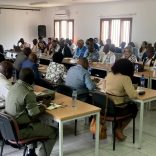
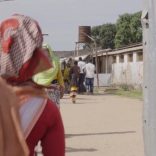

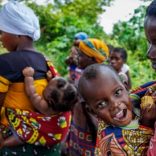
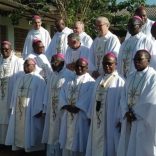
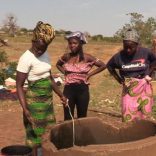





Leave a Reply
Be the First to Comment!
You must be logged in to post a comment.
You must be logged in to post a comment.